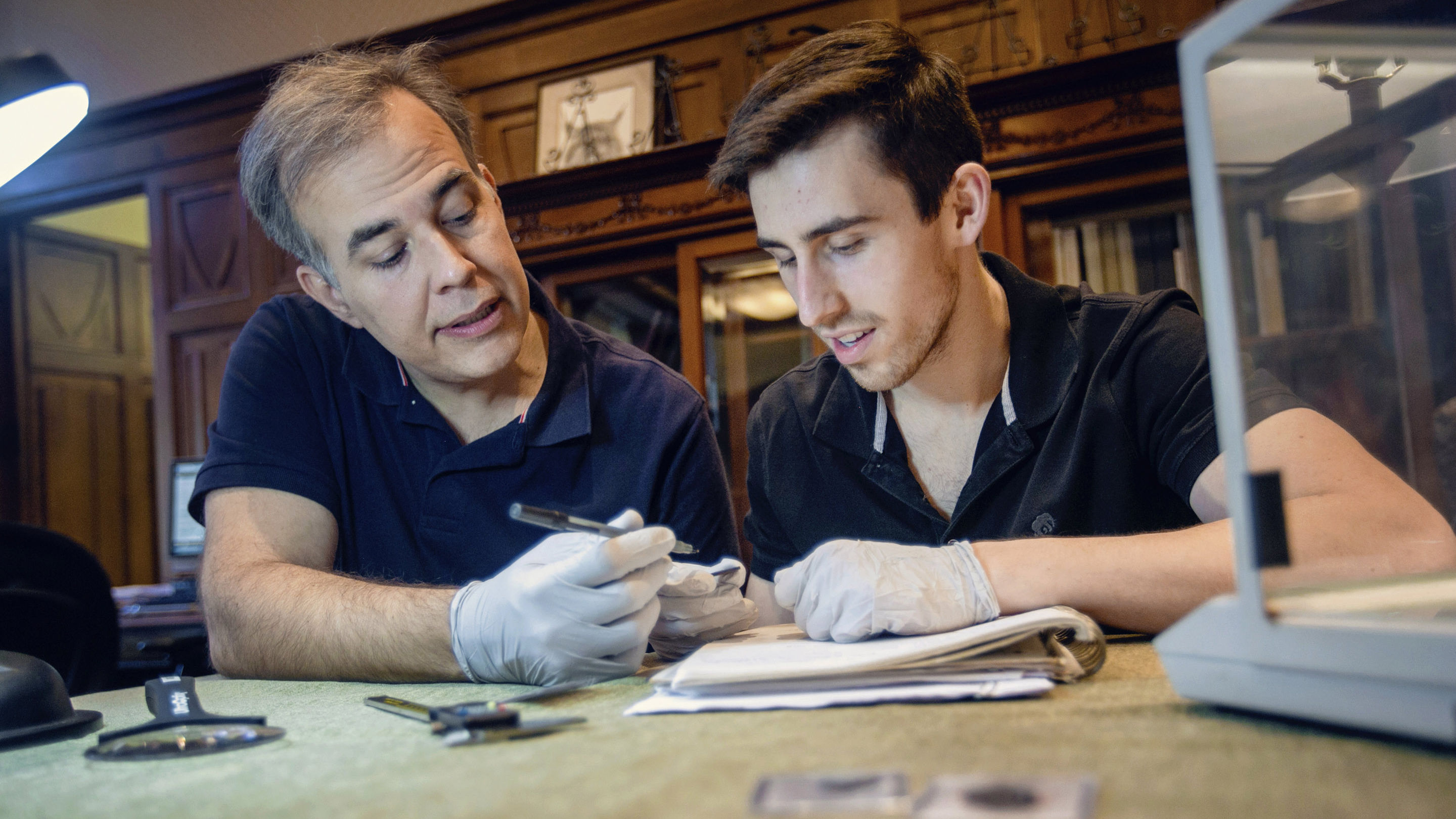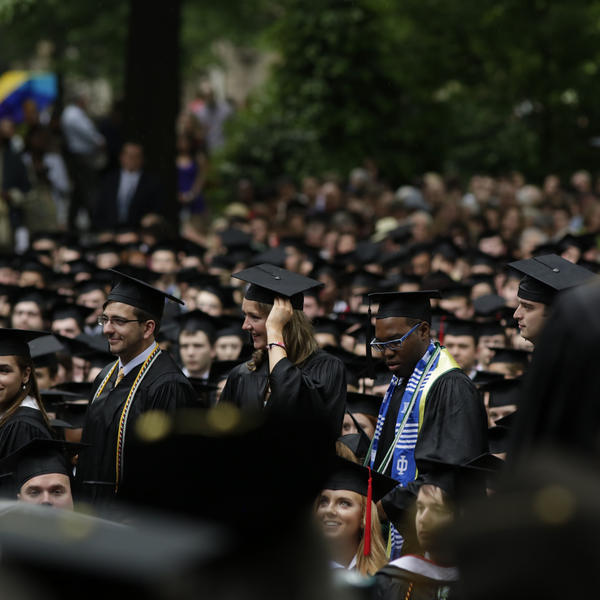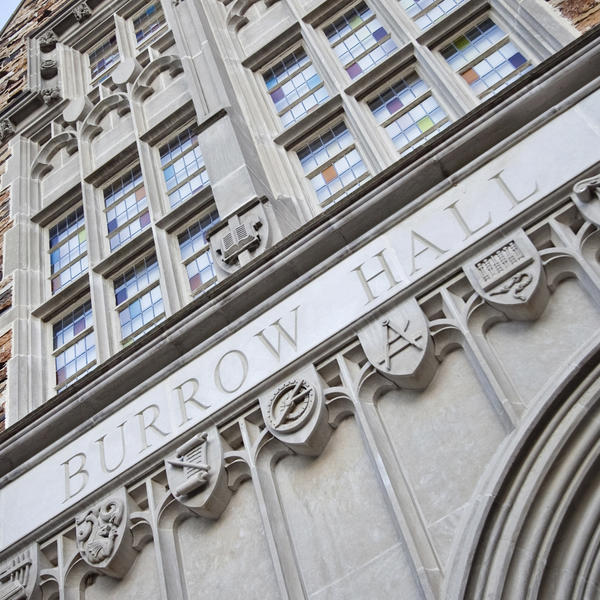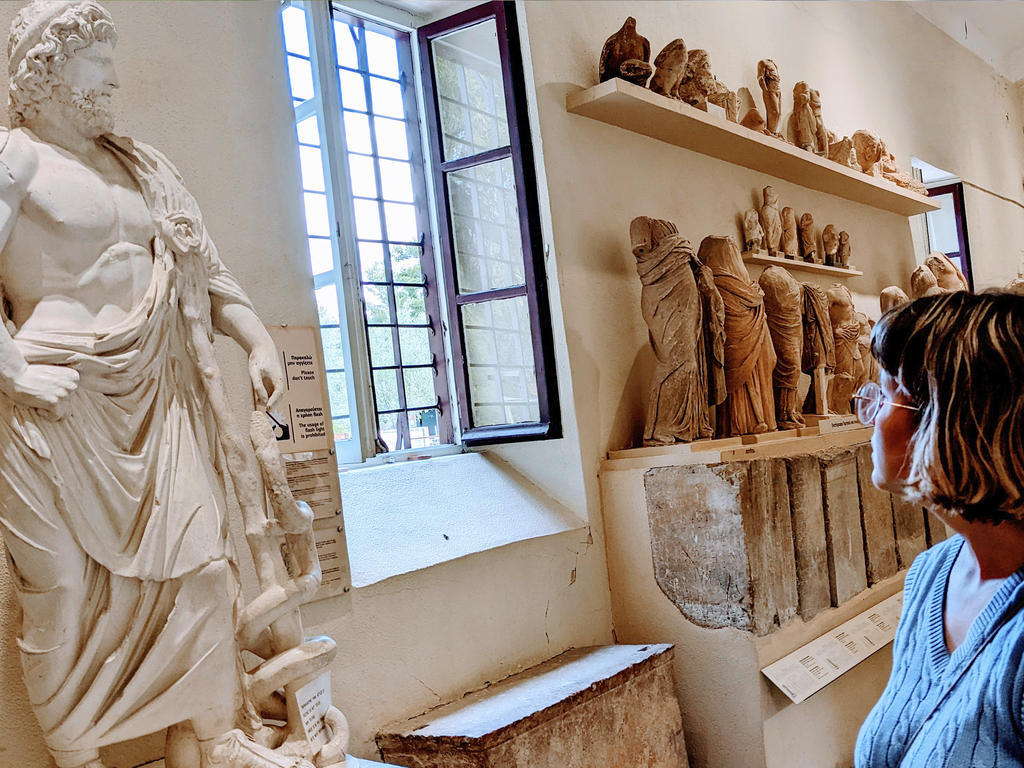The concern of the Ancient Mediterranean Studies program is not only to help our students gain expertise in the languages and cultures of the ancient Mediterranean but also to realize a number of more general goals, which will have an influence on the quality of their lives and accomplishments regardless of their specific ambitions. These goals include:
- To develop a thorough understanding of the ancient Mediterranean cultures as the basis for the artistic, scientific, social, and political traditions of Western society
- To increase their level of preparation for further academic and professional training (particularly in the medical and legal professions)
- By strengthening their ability to comprehend and use language more effectively and productively
- By introducing them to the people, events, and ideas from antiquity that have a direct bearing on our lives today
- By emphasizing the interrelated nature of human experiences and knowledge.
To achieve these goals we are committed to providing a learning environment for students that will allow them to gain an understanding of the ancient world in the most efficient, supportive, and creative ways possible. Philosophically, we have designed our program with the following convictions in mind.
- The study of the ancient Mediterranean should extend beyond the traditional boundaries of the "Classics" discipline and assume a more natural, supportive role as an interdisciplinary program with ties to all areas of academia that have been influenced by the cultural accomplishments of the ancient Mediterranean cultures.
- The program reaches as many students as possible by presenting information and questions about the ancient world in a variety of contexts and courses that appeal to a broad range of academic and professional interests.
- Students should have the opportunity to acquire the ancient Greek and Latin languages in an enriched, contextualized environment that reflects the theoretical and pedagogical advances from the field of second language acquisition and keeps pace with developments in modern language instruction.
- Students should have the ability to direct their study of the ancient world in ways that go beyond simply choosing courses, so their efforts in learning about ancient Mediterranean cultures will have a more direct relevance to their lives and academic ambitions.
- Students should have the opportunity to apply their knowledge of the ancient world not only in their other academic work but also in the service of those who would benefit from a better understanding of how the accomplishments of classical antiquity have influenced the nature of our present artistic, scientific, and political conventions.
- In their study of the ancient world, students should have access to as many resources beyond Rhodes as possible, so they will benefit from experiencing a wide variety of perspectives on antiquity and learn to use different types and sources of information and discriminate productively among them.
Approach
In working to achieve these goals and embody these convictions, the Ancient Mediterranean Studies program incorporates a number of distinctive features.
Ancient Mediterranean Studies Courses
These courses both meet the needs of majors and minors in Ancient Mediterranean Studies and introduce students from the broader campus community to the study of the ancient Mediterranean cultures. Reflecting the inter-disciplinary nature of the field, these courses take a topical approach to aspects of the ancient world and draw on a range of documentary and non-documentary sources that introduce students to the primary evidence from which scholars develop their understanding of the ancient Greeks and Romans.
Language Courses
Our language courses reflect the following features:
- Our courses feature a modified natural approach. Following the way children naturally learn to use language, the primary focus of the natural approach is to expose students to as much comprehensible language or input as possible in more than one medium. Early production in the target language is de-emphasized as a graded component to reduce anxiety, oral practice complements written exercises during the first two semesters, and practice in listening comprehension supplements the reading assignments. Furthermore, our elementary sequences begin in different semesters. We offer Greek 101 in the fall and Latin 101 in the spring. This allows for students who are interested in acquiring both ancient Greek and Latin to avoid problems associated with taking two beginning courses simultaneously.
- After completing the elementary sequence (or achieving a comparable level of proficiency elsewhere), students take Greek and Latin 265, which introduce students to the literature of ancient Greece and Rome through contextualized readings. Aiming to provide students with an optimum environment for building fluency these courses generally feature works from a single author to reduce stylistic and contextual variation. Greek 265 usually focuses on texts from the 5th and 4th centuries, while Latin 265 emphasizes readings from the Late Republic and Augustan periods. To give students a chance to study a number of the basic texts from these periods, the readings change from semester to semester and generally alternate between poetry and prose. Whenever possible, the readings relate to other courses offered during the same semester. For example, when Mediterranean Studies 260: Poetry and Performance focuses on Athenian dramatic festivals, the readings in Greek 265 will come from the works of Sophocles or Euripides. Finally, to enable students to continue progressing in their acquisition of the languages during the semester when other demands are particularly heavy, they have the option of taking Greek 265 and Latin 265 for two or four units.
Once students progress to an advanced level we encourage them to participate in the inter-institutional collaborative courses we offer in collaboration with Sunoikisis. Designed and managed by a team of faculty members from participating programs at the member institutions and with the support of the Center for Hellenic Studies, these courses generally emphasize exposure to a wide range of authors, topics, and time periods as well as introduce students to recent critical approaches.
We are extremely proud of the individual and collective accomplishments of our distinguished alumni.
The Ancient Mediterranean Studies Department at Rhodes works with a number of other programs and projects to expand the range and variety of opportunities for students to learn about the ancient world.
We are committed to providing students with opportunities to study abroad.






